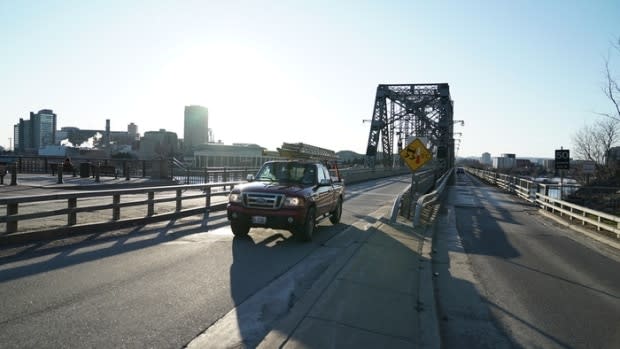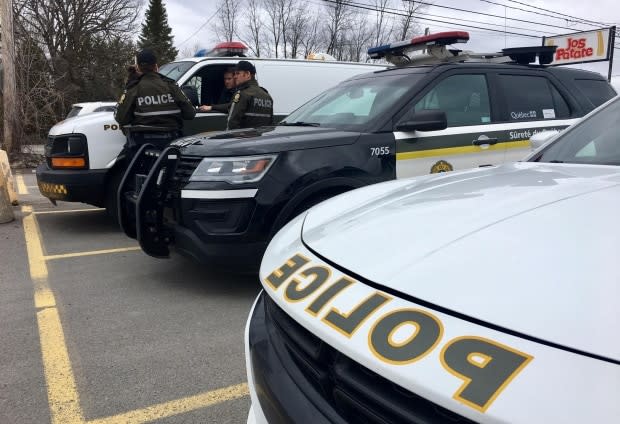Quebec's new travel restrictions cause friction across Ottawa River

Some people on the Ontario side of the Ottawa River are questioning the Quebec government's decision to try to stop the spread of COVID-19 by restricting cross-border travel.
Municipal and provincial police set up checkpoints on some bridges and roads leading into Quebec on Wednesday, part of new rules against non-essential trips in the Outaouais.
Only those on their way to work, to a medical appointment or with "humanitarian reasons" would be allowed, Gatineau, Que., police said in a news release.
Anyone who doesn't turn around could be fined.
Poya Saffari lives in Ottawa, but his parents in their 70s live separately in Hull and Chelsea, Que..
Saffari has been bringing them groceries while they self-isolate to protect themselves and said he's not sure if he will be allowed into Quebec under the new regulations.
"I'm very concerned about my ability to be able to continue to provide them that support and remain connected," he said.
While someone like Saffari may qualify under the humanitarian category, it's unclear what criteria will be used to determine who can pass and who can't.

Gatineau police said officers would assess who can cross into the province on a case-by-case basis.
"There's a lot of this that's unclear right now," said Saffari.
"If you're going to come out with these kinds of fairly dramatic restrictions on movement, you have to be clear as to exactly who is allowed to cross this bridge and who isn't."
'Brings so much grief'
Christine Guillebaud's family is also caught on both sides of the divide.
Guillebaud runs a daycare in Ottawa that's still open because some of her clients are doctors.
Her husband and two children are staying at a cottage near Mont-Tremblant, Que., while her daughter self-isolates after returning from travel.
Guillebaud doesn't know if she'll be able to visit them this weekend to bring supplies and food.
"I understand the need to limit the spread of the virus," said Guillebaud. "
[But] closing one direction on the bridges to all except non-essential services is cruel and brings so much grief to so many people in this area who have families on both sides."

Coun. Mathieu Fleury represents the Ottawa ward of Rideau-Vanier, where the Alexandra and Macdonald-Cartier bridges carried thousands of vehicles every day before the pandemic.
"We recognize the proximity to Gatineau and how residents can live and work on on different sides," he said.
"These measures simply add stress to add to their commute, which in this time of stress is simply not helpful."
Fleury said many people are already avoiding non-essential travel on the advice of public health officials and questioned whether the controls would achieve their desired effect.
Strong message
Gatineau Mayor Maxime Pedneaud-Jobin said the province needs strong measures to ensure the coronavirus outbreak doesn't get out of control, as it has in some places in Europe.
"It's time to have to send strongly the message that non-essential travel should be avoided," he said in an interview on CBC Radio's All In A Day.
"Unfortunately the way to be a good neighbour these days is not to visit."
WATCH: Gatineau mayor says 'now is the time to be disciplined'
The new restrictions are part of a broader provincial plan that started last weekend and banned all non-essential travel into eight regions of Quebec .
Premier François Legault said Wednesday at his daily news conference the new rules are also because people were coming from northern regions to shop further south.

Quebec has the most cases of COVID-19 of any province in the country, with over 4,600 as of Thursday morning.
It counts confirmed and suspected cases, while other provinces don't count the suspected ones.


